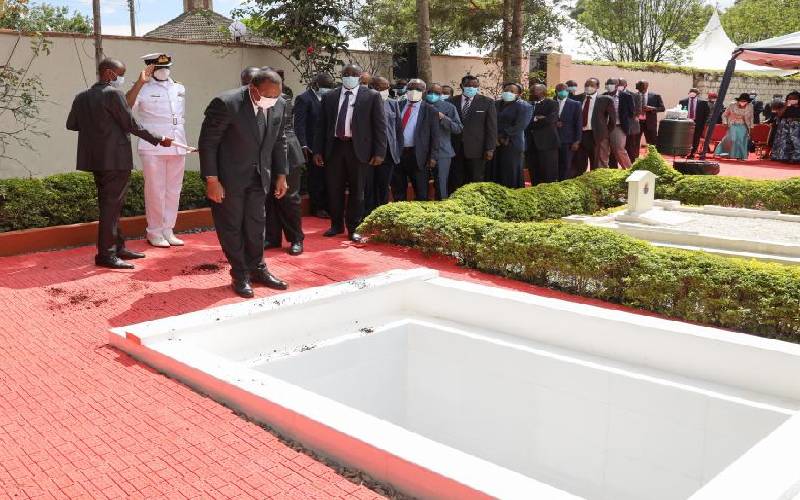×
The Standard e-Paper
Fearless, Trusted News

President Uhuru Kenyatta pays his last respects to the late former Cabinet Minister Simeon Nyachae at his gravesite during his burial at his Nyosia home, Kisii County on February 15, 2021. [PSCU, Standard]
On Monday 15, February 2021, two men who played key roles in Kenyan politics were laid to rest.